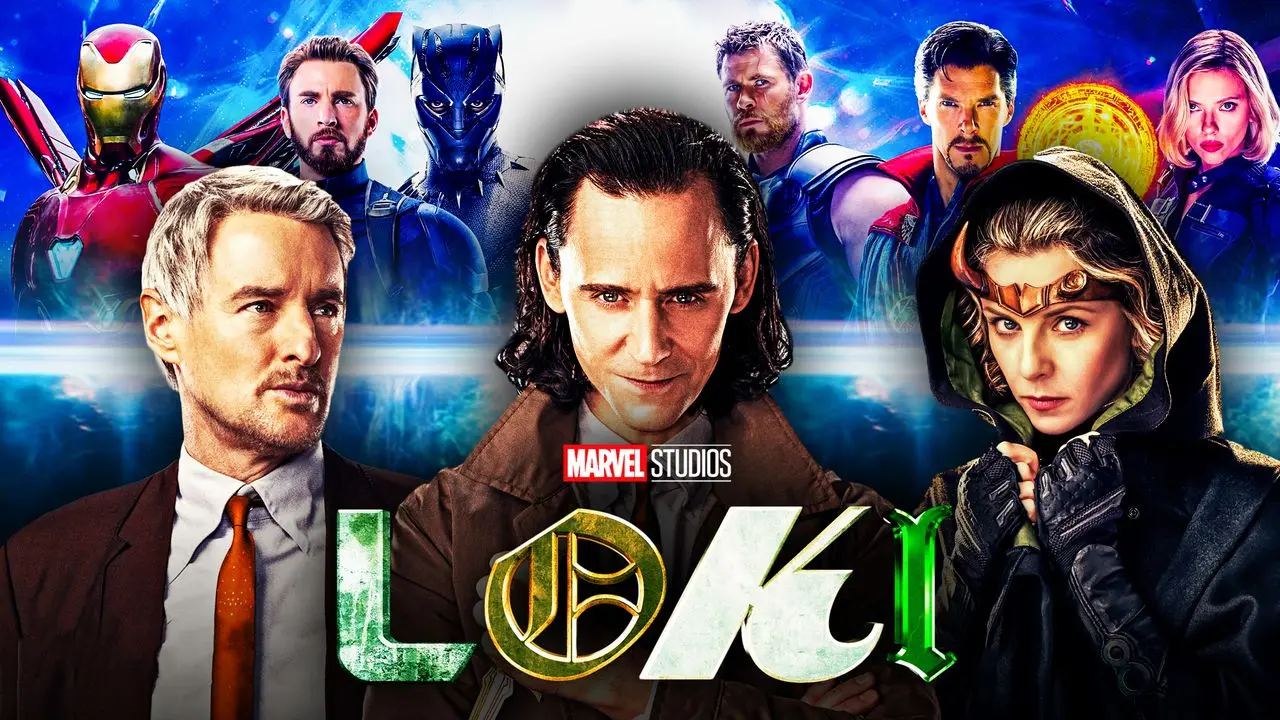
Warning - This article contains spoilers for Loki.
When Loki was announced, there was next to no idea what the show would even be about. Loki died in Avengers: Infinity War. He wasn’t coming back. So what gives?
Cue Avengers: Endgame, a movie that provides the answer to just that: it’s not the Loki everyone has known. It’s a Loki that hasn’t experienced the character development that fans followed for nearly a decade after 2012's Avengers.
So how was Marvel Studios going to get fans to care about an entirely different Loki, one who is robbed of nearly all that fans knew of him?
Well, they did it.
THE LOKI VARIABLE
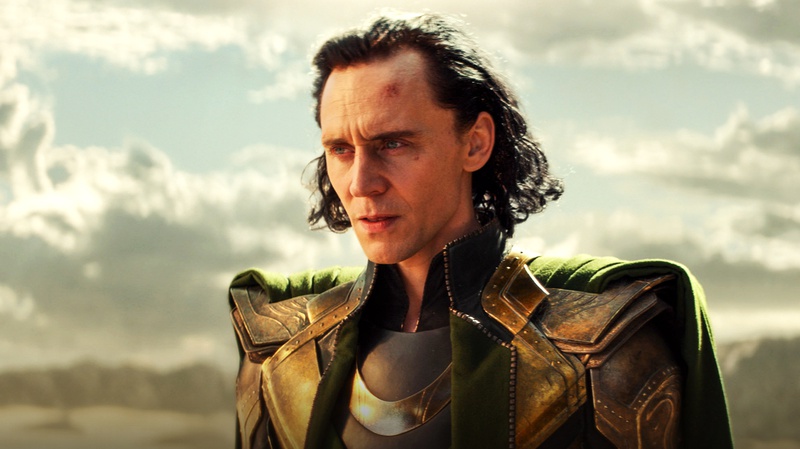
The funny thing about having lost years with this new Loki is that this show has given Tom Hiddleston’s God of Mischief more character development than all of his previous appearances combined. Even just the first episode alone. It was truly impressive how the character was not only handled but torn down and explained to a tee. For the first time, audiences truly know what makes Loki tick.
Loki is a slippery character. How does one buy into character development for someone that is always bound to betray one’s trust—he is the God of Mischief after all. That’s the idea that is at the core of the themes explored within the show. One of the biggest such themes being identity, and what makes someone…well…them? What is one’s true purpose?
Reading these scripts must have been extremely exciting for Tom Hiddleston, who got to express a broader range than ever before. From coping with the knowledge of his doomed future to swallowing the concept of the TVA and the power it holds, to even falling in love with himself. He got to do it all. Hell, Hiddleston even broke into the music charts with “Very Full”, the song he sang in the show’s third episode.
If it wasn’t already apparent, Tom Hiddleston once again nailed it. The man has been playing this character for over a decade—it would be strange to fumble now. By the end of the show’s first season, audiences are truly connected to an entirely new Loki.
If Hiddleston is ever to truly cross back over into the MCU prime, for more than just a small appearance, it wouldn’t detract from the death of the Loki that fans knew, given how significant the change in character has been. With everything he’s gone through now, it would be quite interesting for him to interact with the Thor of the prime MCU timeline.
With the exploration of self, what better project to introduce the concept of Variants? Such as the one and only Sylvie.
SYLVIE, GODDESS ON THE RUN
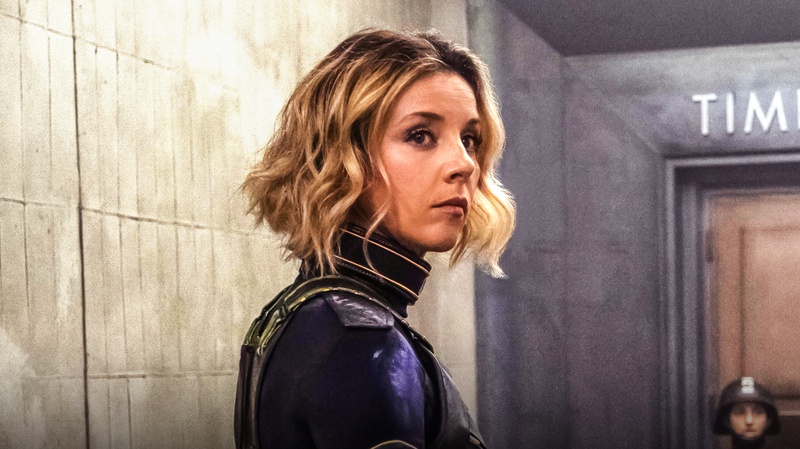
The show’s exploration of identity was eventually taken quite literally when Sylvie was introduced to the audience. A Loki from a never-before-seen timeline. Same person, but all to her own as well—likely only aided by her vastly different set of experiences. It’s something that took Tom Hiddleston’s Loki a second to process as well.
But clearly, this Variant was pretty unique. There was a bond between Martino and Hiddleston that was instantaneous and infectious. Much like the dynamic between Loki and Mobius, the same can be said about these two—they were a delight to watch on screen.
Sophia Di Martino was one of the show’s most pleasant surprises. She was brilliant, and - much like Owen Wilson - she brought a presence to the room that matched, if not exceeded, Tom Hiddleston’s. It’s such a delight that she didn’t end up dead by season’s end. Something that points to a longer MCU tenure for the best new Loki Variant.
The elephant in the room is that she was part of a love story element with...well...herself...at least technically speaking? The bond between Hiddleston's Loki and Sylvie was strong, and clearly, they clicked in a way like they never had with anyone else. “The Nexus Event” perfectly explains why the whole concept of Loki falling in love with himself is so perfect for the character—as well as highlighting his tragic flaws at the same time.
While Sylvie felt the same connection that Loki did, it wasn’t enough to overcome her desire for revenge against the person who was responsible for being pulled out of her timeline. That was none other than The One Who Remains, who was killed by Sylvie herself—after she betrayed Loki by exploiting his weakness: himself.
It’s a real shame that the show never revealed what Sylvie’s Nexus Event was. It was played off as super important, yet it would seem it wasn’t significant enough to bring it back up. Maybe its insignificance to Ravonna was the story's only purpose in bringing it up?
But then again, that strong feeling of revenge against He Who Remains had to have been rooted in something crucial. Something like her Nexus event. While the audience had a general understanding of her situation and why she was mad, it would have gone the extra mile to know what her life had been like—and what event caused her to lose everything.
Next season, hopefully, all of that gets some time to be explored. Of course, fans will also probably get a reunion between Loki and herself. With her revenge potentially complete, what will drive her now? How will she get involved with this new TVA? Hopefully, for her, there isn’t an endless amount of them. Something indicates she wouldn’t be the biggest fan of that.
When it came to the design of the character, her costume was phenomenal. It was sharp, extremely well put together, and perfectly gave off the Loki vibe. The horns were also a unique little flair, begging for questions to be asked about how one horn got broken in the first place.
MEET LOKI, LOKI, AND...LOKI
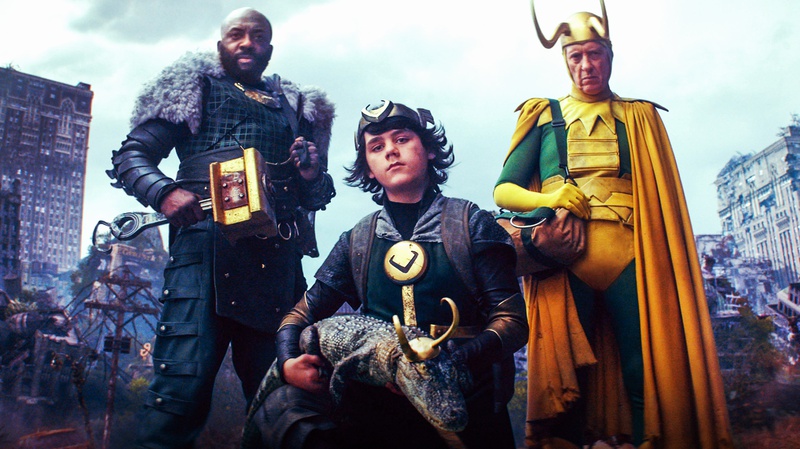
While Sylvie was the poster child for the concept, there were plenty more Variants where she came from; or rather, where she actively avoided getting pruned to. Alligator Loki even went on to be immortalized by memes across the internet.
Most of the other Loki Variants of any importance didn’t show up until “Journey into Mystery.” Out of the bunch, Classic Loki got the spotlight. Richard E. Grant was great and given even his brief screentime that viewers had to connect with him, it was enough to make his big moment against Alioth have a sizable impact.
Even greater was seeing that silly comic accurate outfit. Another example of something people would have thought would never exist on screen, yet now it does. At this point, if someone declares that someone’s costume just won’t translate to the screen properly, promptly reference this—and many other MCU examples—to shut that down. Anything can be done by people that have the passion to make it work, as shown many times over in Loki.
Right behind Classic Loki was Kid Loki. It is a little unfortunate that he didn’t get more than he was given. That episode as a whole should have been spread out into at least two installments, so that it would have given the concept of everything going on time to breathe, alongside all the characters that were quickly being introduced.
While Kid Loki didn’t get much time, he is a character that is involved with the Young Avengers, a project that Marvel Studios is not so subtly setting up. So, while it is sad that more wasn’t done with his character here, there’s no doubt he’ll show up again down the line in some fashion.
As for the rest, besides the forever meme-immortalized Alligator Loki, they weren’t all too noteworthy outside the gags that they appeared in; something that’s sad to say for Boastful Loki, given he was in that first group introduced. Then he went on to do...well, nothing, and proceeded to get lost in the Loki brawl. Never to be heard from again.
Also, as quick as The President Loki gag was, it’s worth noting that the costume design for that look was phenomenal. Probably why it was one of the first visuals of the show given to the world.
MOBIUS, MAN OUT OF TIME
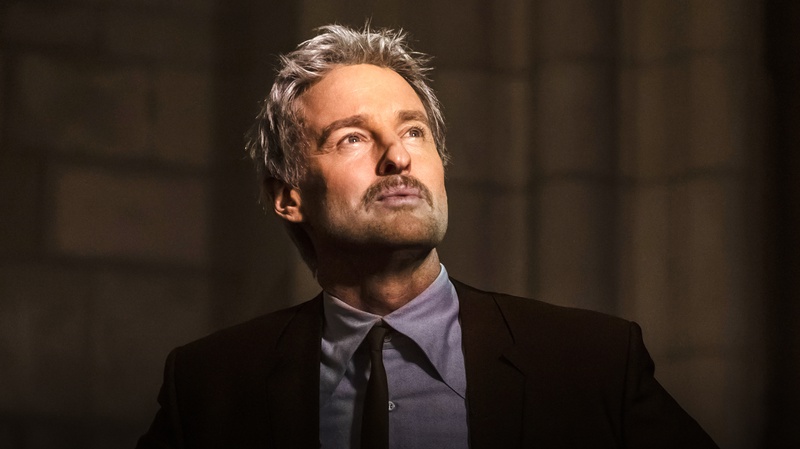
While the show may be called Loki, there are still characters that aren’t him. Case in point: Owen Wilson’s Mobius. Wilson jumped on board a project that wasn’t in his usual wheelhouse and nailed it, likely shutting down some naysayers in the process.
Wilson did a great job, and his performance provided unique energy to the proceedings. His dynamic with Hiddleston was fantastic and was fun to watch play out.
Sadly, something was missing when it came to the emotional core of the character. There were hints at Mobius being different, such as the moment in front of the Roxxcart survivors, or the desire for a simpler life in the 90s on the jet-ski—but all of that was never really paid off.
Sure, he eventually did come to his senses and realize the truth about the TVA. But it all happened so quickly that the audiences weren’t given the time to see Mobius process everything, and what it meant to him.
They placed a lot of that weight on his final confrontation with Ravonna. While their friendship was certainly something seem throughout the show, the writers seemed to think there was going to be more of an emotional impact for the audience than there ended up being. Don’t misinterpret though, that scene was still fantastic—both Owen Wilson and Gugu Mbatha-Raw knocked it out of the park.
Hopefully, next season Mobius will be given some time to breathe so that fans can see how he’s handling the chaos that Sylvie has now unleashed. Maybe he’ll even get that jet ski that viewers were robbed of seeing this season. Keep those fingers crossed.
HUNTER B-15, NOT A LOKI FAN
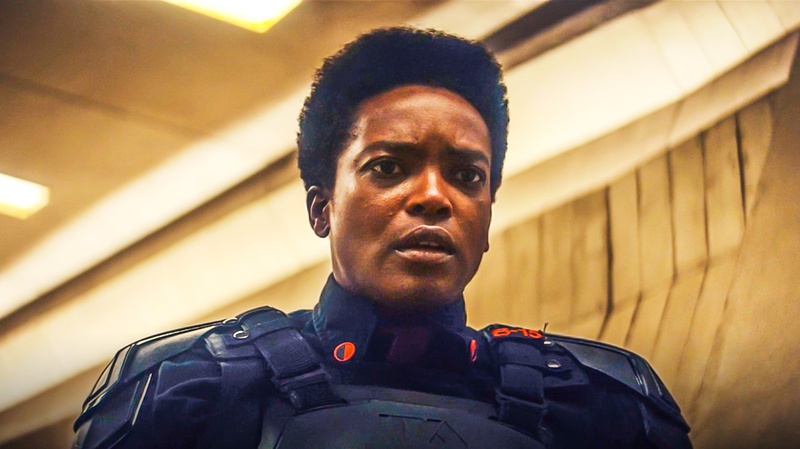
Wunmi Mosaku’s Hunter B-15 was sadly one of the least interesting characters in the show. She started cartoonish, hating on Loki for no real reason. Put blankly, she was more annoying than anything else.
The character would have benefited from an additional scene or two, giving some context to who she is now. For example, she seems to hate Loki, and/or Variants in general. The show should have let the audiences see that, and those experiences. An example would potentially be to show a flashback involving an incident with a former Variant, Loki or not, that caused the hostility that was seen from the character in the first portion of the show.
But then, there was a moment where things could have taken a turn for the better. Sylvie enchanted Hunter B-15 and unlocked an experience from her past life. Now, this dull character started to come to life. Sadly though, all of that was never truly realized.
Sure, there was that scene between her and Sylvie as they went to the apocalyptic Roxxmart so that Hunter-B15 could once again experience what she had forgotten. It was nice, no question. But it wasn’t enough.
The show seemed to forget about her after that, giving the character the briefest of moments in “Journey Into Mystery”, and then using her for a quick scene in Ohio—which was a little silly, and fairly inefficient way to convince everyone that the entire TVA are Variants.
The character is far from irreparable though. The second season just needs to see her worth, and give her a little more time—and in doing so, involve her in the proceedings more so than she was in this first season,
RAVONNA, THE WORKAHOLIC
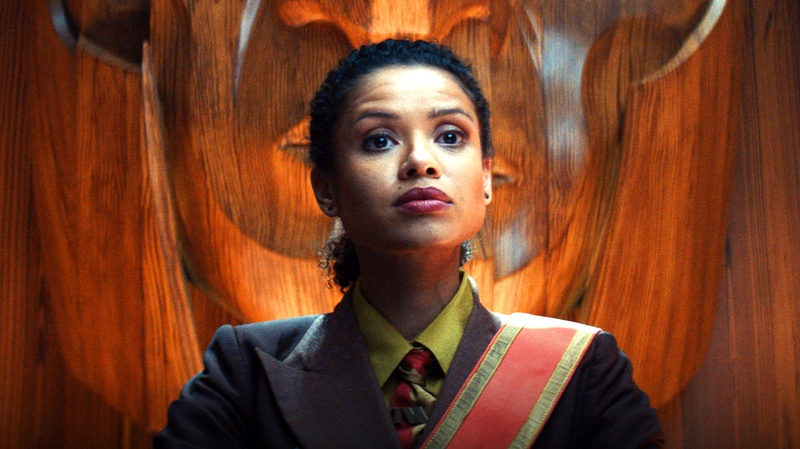
What was best about Ravonna Renslayer is how she understated of a villain she was. When viewers first saw her, she was simply the Judge, dooming Variants to their pruned fate. There wasn’t much to her in those first few episodes.
It was established how seriously she took her duties, and how all of that encompasses who she was as a person. It had taken hold of every aspect of her being. So when Sylvie and Loki go and expose the Time-Keepers as fakes, everything that she is as a being vanishes in an instant.
In free fall, she reaches out for anything she can. There must be a reason. A purpose to all the lies. It all couldn’t have been for nothing. She had gotten so lost that Ravonna wasn’t able to process her existence anymore, not without her so-called glorious purpose.
So she filled that void with excuses, and Ravonna was so busy making them, that the truth everyone else in the TVA was realizing simply couldn’t compute for her. So, of course, she started her journey to get the answers she needed, answers that will likely end up being twisted into the lens that she is seeing everything in—something that certainly won’t be helped when she runs into the likes of Kang.
The surprising depth of the character was fantastically done, even if it didn’t start to show itself until a few episodes had passed. Gugu Mbatha-Raw was great in the role, and this is surely only the beginning of her journey when it comes to Ravonna Renslayer’s time in the MCU.
HE WHO REMAINS
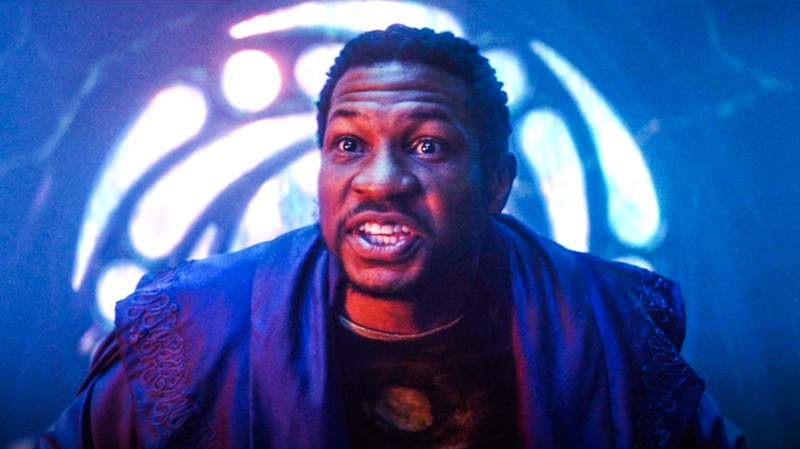
The signs were there from the beginning. The person behind the TVA and everything they do wasn’t a surprise to most. It got to a point that if it wasn’t the theorized Kang the Conqueror, then it would be an issue. Though, they never did call him by his proper name in the show, only alluding to the conquering aspect of it.
The first Kang that the MCU is introduced to isn’t what one would have expected. Jonathan Major’s debut was phenomenal, and while we haven’t seen his warlord persona just yet, Major got to have some fun. What fans got was a mix of the comic’s Immortus and He Who Remains—with a touch of Marvel Studios’ originality.
This Kang was more upbeat, giddy, and jestful. He had everything under control. In his eyes, he was the hero here; the savior. He had tidied up the timeline, saved it from chaos—and more importantly, himself.
Majors fantastically portrayed Kang’s tortured, dutiful and self-proclaimed heroic persona. The best part of his performance was the very moment that the timeline went past the no return, and he stopped knowing everything—and more importantly, knew of the threat that spawns out of it.
Many think that the introduction of Kang did nothing for the show, but rather only served to set up the future of the MCU to the detriment of Loki. While it is set up for the future, Kang’s reveal and existence also play an important part in the show as a whole.
Most importantly for the show, seeing the man behind the curtain means a lot to the show—not to mention the many questions answered by Kang. But it became further important in regard to how both Loki and Sylvie handled their dilemma—especially since the consequences seem larger than life itself. Clearly, the two didn’t agree when it came to solving it. That sequence where the two of them fight each other was one of their best performances of the whole show.
Officially having the next big bad in the MCU is truly exciting, and having that introduction occur in one of the Disney+ shows is a statement to Marvel Studios’ intent on proving that their streaming selection is just as important as what hits the big screen. A nice additional touch to it all? Loki was the first to introduce the world to Thanos, and now he’s done the same for Kang. Lokis really know where to find trouble, don’t they?
MUSIC - PRODUCTION DESIGN - VFX
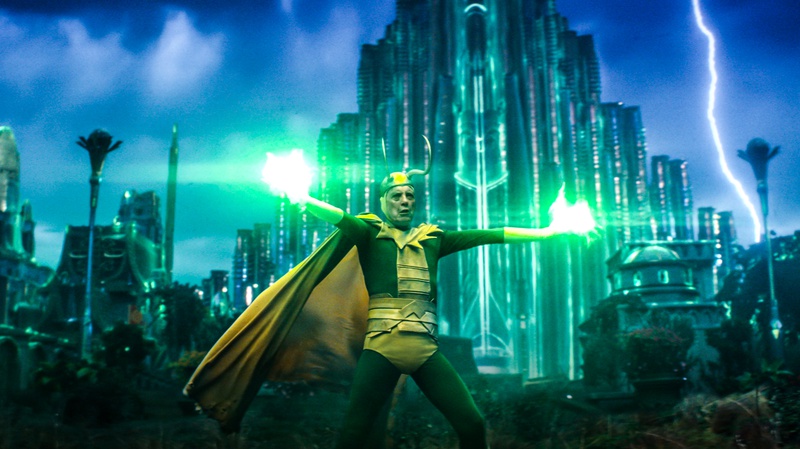
Out of all the Disney+ shows, Loki takes the cake in having the best score of the bunch. Composter Natalie Holt is incredible, and her music adds so much to the experience—as do her many reoccurring themes that weave throughout the show. “Variants” is probably one of the best additions to the MCU’s score in a long while. No, “Agatha All Along” doesn’t count.
One thing that separates this title from the rest of Marvel’s Disney+ outings is its visuals. Not only that but the range that they have. In the same episode, the show can go from immaculately designed retro-futuristic TVA offices to a corporate supermarket in an apocalyptic storm, or a desecrated landscape with an angry cloud waiting to erase one’s existence.
However, there were times that the budgetary limits were clear. Like when Loki and Mobius go back to Pompeii, the environment was clearly a small set on a soundstage. Something that was also given away by the jarring restricted camera coverage.
Hopefully, if the rumors are correct, and the second season of Loki is set to start production in January 2022 in the UK, then the show will have access to The Mandalorian’s Stagecraft technology, something that will open up all kinds of doors and possibilities for the show.
Of course, there were plenty more moments where the VFX wowed. The first stand-out sequence would go to “Lamentis-1” when, at the end of the episode, the entire area around the arc is being destroyed, and Loki and Sylvie are running like fish-out-of-water trying to escape it. The set-piece was a movie-level sequence; one that was sadly housed within a mediocre episode.
Then there was Alioth. The concept and utilization of such an obscure comic character were extremely well done. So thankfully, the VFX was able to do it all justice. That final showdown in “Journey Into Mystery” facing off against Alioth was excellent—both from a writing perspective and a technical aspect. Alioth’s presence was undeniable, making the Loki’s victory over them all the more impressive and empowering.
Thanks to Sylvie, Loki gifted what is personally one of my favorite pieces of imagery in all the MCU: the Sacred Timeline branching out and blossoming into a massive and chaotic multiverse. It was utterly breathtaking, and a sight to behold.
Everything to do with that area was extremely well done. The design of the rock, sitting in the middle of the Sacred Timeline, with a castle carved out of it, housing the timeline’s protector; the aesthetic and vibe when inside the castle was fantastic as well, truly keeping viewers on the edge of their seats.
PACING

Now to dive into the weakest element of Loki: the exposition. To the show’s credit, there are a lot of new concepts and rules that are constantly being introduced. Yes, most of that stuff is both interesting and exciting for the fans to discover.
But at a point, it becomes too much. Nearly every single episode of the series had at least a third, if not more, of its runtime dedicated to exposition. As great as it was, the first episode was almost entirely characters feeding information to the audience. Episode two wasn’t much different, with most of the time spent talking about how the apocalypse loophole works.
While those episodes are still strong installments overall, the expositional problem becomes evident the more the show went on. Yes, with time travel comes lots of rules that need to be established—but there is a balance that needs to be struck, and it’s one that Loki rarely achieves.
Even one of the more exciting reveals of the show, in Jonathan Major’s He Who Remains, was bogged down by this. A majority of his scenes were simply explaining his story and the situation to the audience—yes, even if the information is exciting for MCU fans, and the performance behind it fantastic.
When looking at the show as a whole, the only true hiccup when it came to the show’s momentum was “Lamentis-1”. An episode where the story began and ended in the same exact place. Sure, audiences got to know Sylvie, and a dynamic between her and Loki was established; but there were better ways that could have been done. It was especially jarring not spending any time with the TVA, seeing as last we saw them, the timeline seemed to have been destroyed.
There was never any consistent pace for the show, and it would generally be all over the place. So the show’s momentum never got to reach its potential because of examples like the aforementioned “Lamentis-1”, and “For All Time. Always.”, where over half of the episode is just expositional dialogue—yes, even if it does come out of the mouth of the MCU’s next big threat.
THE FUTURE OF THE MCU

Loki was a bumpy ride, and much like the previous two Marvel Studios Disney+ shows, it’s not a perfect piece of work as a whole. It’s fairly evident that the studio is still finding its footing as to how to convert the creative processes that they have nailed down with the films, and apply that to their Disney+ show.
But even with the issues at play, there is so much to love about Loki. The characters, designs, concept, music—if this review is anything to go by, the list goes on. What’s one of the most respectable things about the show is how it managed to be a completely different type of show than WandaVision and The Falcon and the Winter Soldier, having found its own unique identity.
Out of the three, Loki even seems like one of the most important additions to the MCU since Avengers: Endgame. With that weight and trust in the show’s concept, one can only imagine that its importance will remain just as relevant going into the second season. After all, with how important Kang’s role was in this, and his ominous warnings, he’s bound to show up again here alongside his probable many other future appearances in the MCU.












